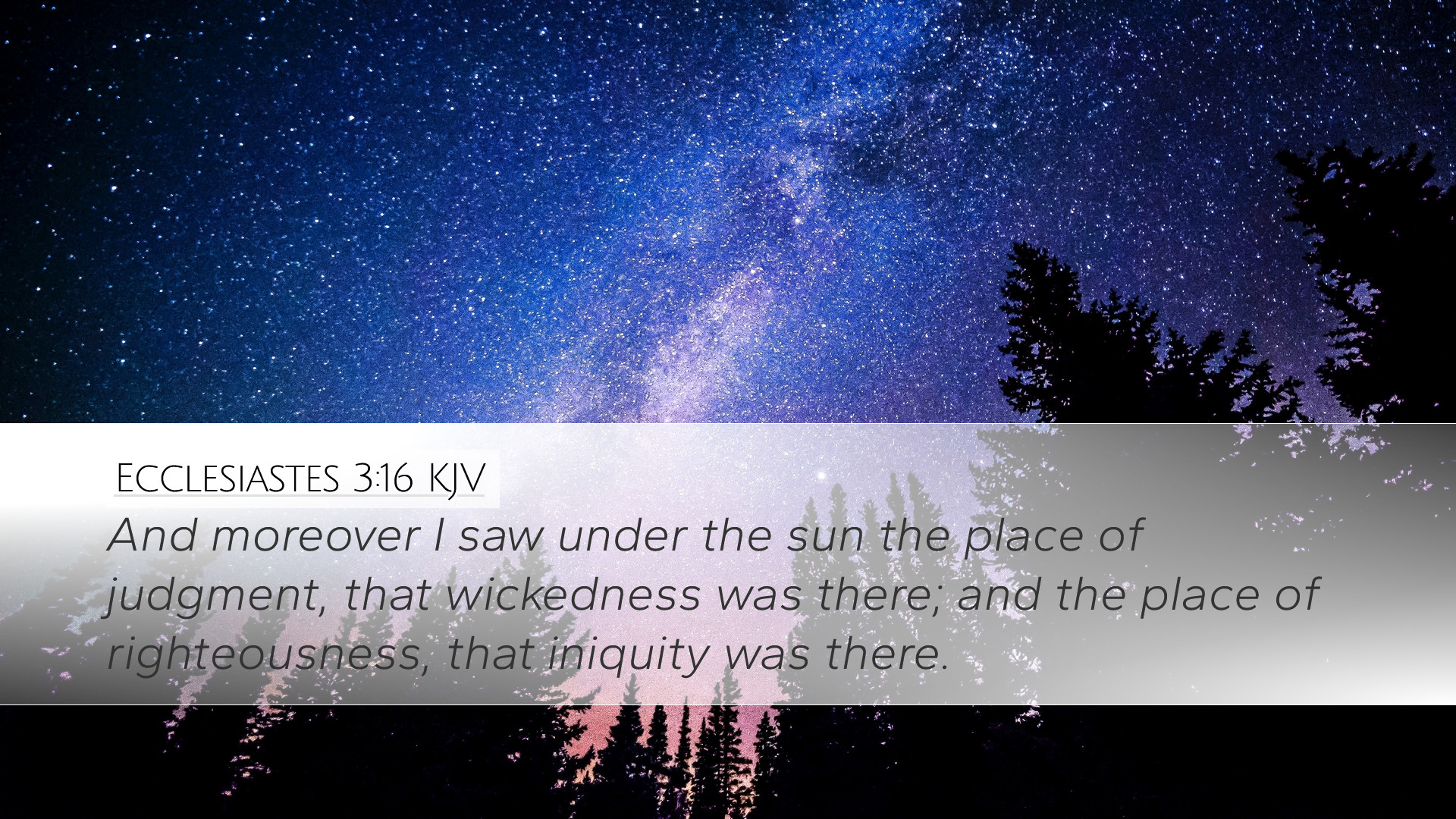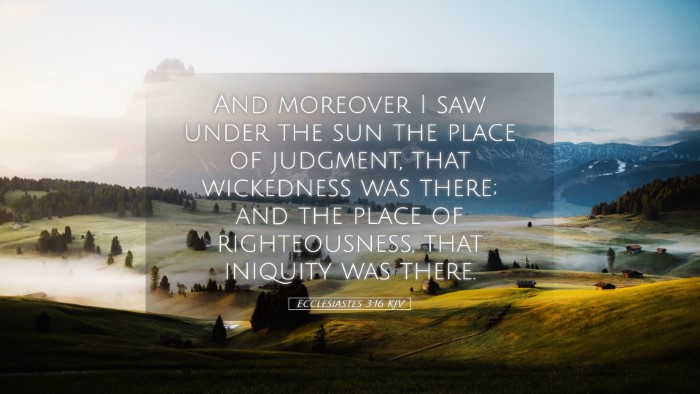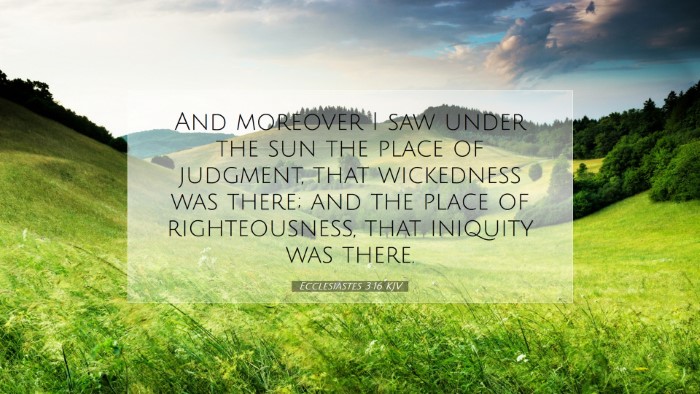Ecclesiastes 3:16 Commentary
Verse: "And moreover I saw under the sun the place of judgment, that wickedness was there; and the place of righteousness, that iniquity was there."
Introduction
Ecclesiastes 3:16 serves as a pivotal verse in the discourse of the book. Here, the Preacher, traditionally identified as Solomon, reflects upon the observations of life and the ultimate justice of God. This verse piques the interest of many scholars and theologians, given its implications about the justice of God and the moral state of the world.
Contextual Analysis
This passage comes amidst a section where Solomon contemplates the nature of time and the occurrences under heaven (Ecclesiastes 3:1-15). The perennial clash between justice and wickedness sets the tone for his reflections on the human condition.
Exegesis
The verse delineates two distinct yet interconnected observations:
- The place of judgment: This refers to the societal and legal systems established to uphold justice. Here, Solomon notes a troubling reality where wickedness flourishes even in places designated for judgment.
- The place of righteousness: This alludes to religious or moral spheres, where one would expect to find adherence to righteous principles. Yet, Solomon observes iniquity pervading these spaces as well.
Commentary Insights
Matthew Henry's Commentary
Matthew Henry emphasizes the paradox of expecting justice in societal institutions. He notes that instead of righteousness, what prevails is often injustice, leading believers to question the efficacy of earthly justice. This results in feelings of despair, yet Henry also cues the reader to the ultimate assurance that God, in His own time, will bring everything to light.
Albert Barnes' Analysis
Albert Barnes provides a detailed reflection on the implications of this verse. He highlights the dissonance between expectation and reality—the very institutions meant to uphold righteousness have become tainted by corruption. Barnes posits that this should compel the believer to find hope beyond earthly structures, pointing to divine judgment as the final resolution.
Adam Clarke's Observations
Adam Clarke interprets the biblical text, affirming that both judgment and righteousness are essential components of a functioning society. However, he invites readers to recognize that the presence of wickedness in these places does not negate the possibility of eventual divine justice. Clarke also suggests that this passage serves as a reminder of the need for personal righteousness, encouraging believers to mirror the values they seek in their communities.
Theological Implications
The insights from these commentaries converge on the theme of the dichotomy between the ideal and reality. They challenge readers to grapple with the tension between perceived justice in the world and the sovereignty of God. This leads to deeper theological questions about the character of God, the problem of evil, and the expectation of justice.
Applications for Modern Readers
For pastors and theologians, Ecclesiastes 3:16 offers critical reflection on contemporary issues of justice and morality:
- Identifying Injustice: Modern justice systems often reflect biases and shortcomings akin to those noted by Solomon. This calls for moral critique and active engagement in justice work.
- The Role of the Church: In the face of societal failures, the church is urged to exemplify righteousness, serving as a beacon of hope and integrity.
- Encouragement in Despair: Just as the Preacher grapples with his observations, believers today are comforted with the promise that God's justice prevails beyond temporal experiences.
Conclusion
Ecclesiastes 3:16 encapsulates the struggle between the observed flaws of human institutions and the righteous nature of God's ultimate justice. Through the reflections of Matthew Henry, Albert Barnes, and Adam Clarke, pastors, students, and scholars are given rich insights into how this verse continues to speak to the moral complexities of our world today.


